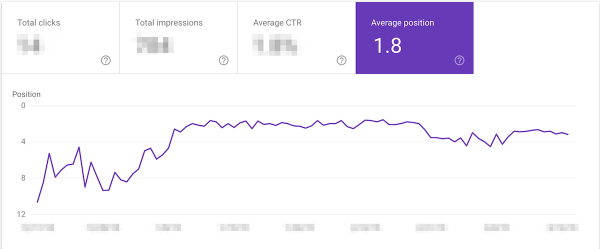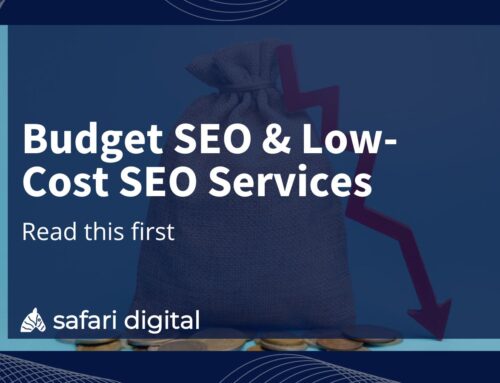
Pay for performance SEO or Guaranteed SEO, where the client only pays for results that they see might seem like a godsend for any small or medium business who has been burnt by an SEO agency in the past.
What’s not to love, all of the benefits of SEO – without any of the risk. If it sounds too good to be true, then you may be onto something.
Any SEO agency worth their salt will tell you the SEO is a long-term strategy, so how are pay per click SEO agencies promising to deliver short term results with no risk for the client?
In this article, we’ll take a look at pay for performance SEO, how it actually works, and what you should be aware of before you start working with an Agency that offers result-based SEO services.
What is Pay for Performance SEO?
Pay for Performance SEO or pay on results SEO is an incentive-based results system whereby a client does not pay for SEO services until they see results.
The definition of “results” can include rankings, website organic traffic, link acquisition, domain metrics, or revenue. Typically, most PFP SEO agencies will focus on metric such as rankings because they are, in many respects, easier to deliver in a short space of time.
How Are Performance Metrics Defined?
Agencies that offer pay for performance SEO typically focus on setting goals based around improving website traffic, rankings, or revenue. Businesses therefore only pay once they a tangible increase in a predetermined KPI. What’s not to love?
Kind of like a no win no fee lawyer, pay-for-performance SEO looks great on paper. However, as the old saying goes: if it seems too good to be true it probably is.
Are Pay for Performance SEO Agencies Inherently Bad?
Not necessarily.
Not all performance-based SEO agencies employ the same tactics. Just because an agency offers performance-based SEO does not mean they are ineffective or untrustworthy by definition. In fact, there are plenty of SEO agencies out there who will charge you up front for low-quality services and rely on churn and burn accounts in order to keep the lights on.
The biggest difference between conventional agency models and pay for performance agencies is that the latter is predisposed to pushing for quick results without any real thought of the repercussions. To put it simply, if these agencies do not deliver results within a set time they are not going to get paid. Therefore, they are more likely to push the envelope and stray from long term, White Hat tactics into Black Hat SEO.
Is Pay for Performance SEO A New Thing?
No, far from it.
Anyone who’s been around the SEO industry for long enough can to tell you that pay for performance SEO isn’t a new thing. There was a time where it seemed to be a popular model for SEO agencies trying to win new clients.
One of the biggest issues with PFP SEO is that it focusses on short term rankings – not long term traffic gains. It’s easy to rank for low competition keywords if you get your on-site content right and back it up with an off-site presence. Websites can rank for hundreds of phrases, but many of them will provide little or no traffic. Putting a dollar value on a number one rank is completely counter-intuitive to the underlying goal of SEO which is to build a sustainable inbound marketing model.
Why is Pay for Performance SEO Dying?
Perhaps one of the biggest reasons that SEO Professionals have moved away from the PFP SEO model is that there is no such thing as a true number 1 ranking. Search engine results are personalised for each user based on their search history which means that everyone will get a different set of results. What ranks number one for one person may rank number 3 for another and vice versa. Putting a monetary value on an arbitrary ranking is impossible.
Here is what a number 1 ranking really looks like in Google Search Console:

How PFP Compromises the Client-Agency Relationship
Pay for performance SEO pits the client against the agency. Successful working relationships are built on trust and mutual understanding. PFP models compromise the collaborative relationship between businesses and consultants. When the success of an agency is being measured purely on numbers, it means that an agency is more likely to spend time implementing strategies that are going to benefit the numbers rather than the business in the long term.
Just like the trust between an employee and employer, it’s critical that the client/agency relationship is built on trust and collaboration.
Why Does SEO Take Time?
Any SEO professional will tell you, the most common question in the SEO industry is: “How long will it take me to get ranked number 1 for my keywords?” Unfortunately, it is also one of the most difficult questions for any SEO agency to answer. There are too many variables in each business that will dictate how long it takes to see results.
No two websites are the same. Even if they are in the same industry and have been around for a similar amount of time there are so many variables which you are going to influence how long it takes for them to see results.
A good SEO agency will provide a realistic timeline with projections. However, with so many factors at play and Googles ever-changing algorithm, it would be negligent to make assurances of how much traffic or revenue can be delivered by a certain date.
How Long Should it Take to See Results?
Auditing, developing, and implementing an SEO campaign with your company takes anywhere from 3 to 12 months. Given that pay for performance agencies profit off of results, not a monthly retainer, they may not see any money from the client for up to a year. Like any business, pay for performance SEO agencies need to make money in order to keep the lights on. As a result, agencies that rely on results before payment are inherently more likely to resort to Black Hat SEO tactics that can deliver short-term results with serious long-term consequences.
Contrary to popular belief, SEO professionals don’t implement strategies at an intentionally slow rate to keep the client paying for longer. The reason the SEO strategies can take anywhere from 3 to 12 months to start seeing results is that white hat, sustainable strategies take time.
How You Should Choose an SEO agency
So then, if pay for performance isn’t the right model for an SEO or marketing agency, what’s the answer? When choosing an SEO agency for your business, here a few important things to look out for:
Long-term Outlook
Work with an SEO agency who is invested in the long-term success of your business. While short term goals are important to set the foundation for reaching those harder long-term objectives, it’s important to work with an agency who focus on your long-term business goals.
Value Transparency
Your SEO agency should be able to explain to you in very simple terms what a monthly breakdown of work looks like. You shouldn’t be confused about what your SEO agency is doing for you. the best SEO agencies should be able to thoroughly and easily explain what is being done and how it is going to help your business grow.
Be Realistic
SEO agencies that promise first page results in a set time without auditing your website or understanding your business objectives should be scrutinised. SEO takes time, as such you need to work with an agency who understands the process. Work with someone who values sustainable growth over a long period.







